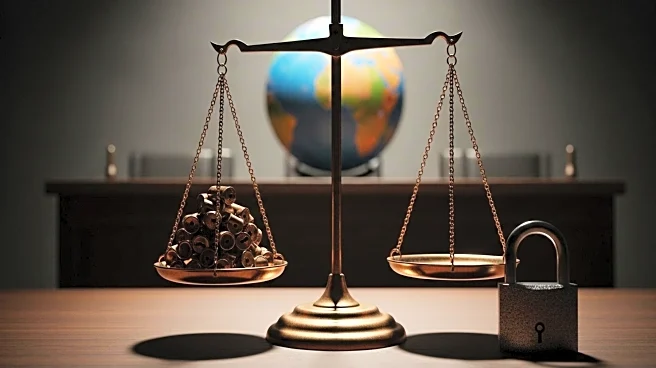What's Happening?
The Trump administration has announced plans to deport Kilmar Abrego Garcia to Eswatini, a small African nation, as he continues to contest his deportation. Abrego Garcia, currently in ICE custody, is facing human smuggling charges in the U.S. and has expressed fears of persecution if deported to certain countries. Previously, the Department of Homeland Security had considered deporting him to Uganda, but Abrego Garcia objected due to concerns of potential torture or persecution. A federal judge has ruled that he cannot be deported until at least early October, pending testimony from Trump administration officials. Abrego Garcia has indicated a preference to be deported to Costa Rica, which has offered him potential legal status.
Why It's Important?
This case highlights ongoing controversies surrounding U.S. deportation policies, particularly under the Trump administration. The decision to deport individuals to countries where they fear persecution raises significant human rights concerns. The outcome of Abrego Garcia's case could set a precedent for how similar cases are handled, impacting the lives of many facing deportation. Additionally, the administration's agreements with countries like Eswatini to accept deportees reflect broader geopolitical strategies and immigration policies that could affect international relations and the U.S.'s global standing on human rights issues.
What's Next?
The legal proceedings will continue as the federal judge has delayed the deportation until early October. During this time, Trump administration officials are expected to testify regarding the government's efforts to deport Abrego Garcia. The outcome of these proceedings could influence future deportation cases and the administration's immigration policies. Abrego Garcia's separate bid for asylum will also proceed, potentially affecting his legal status and future in the U.S.









